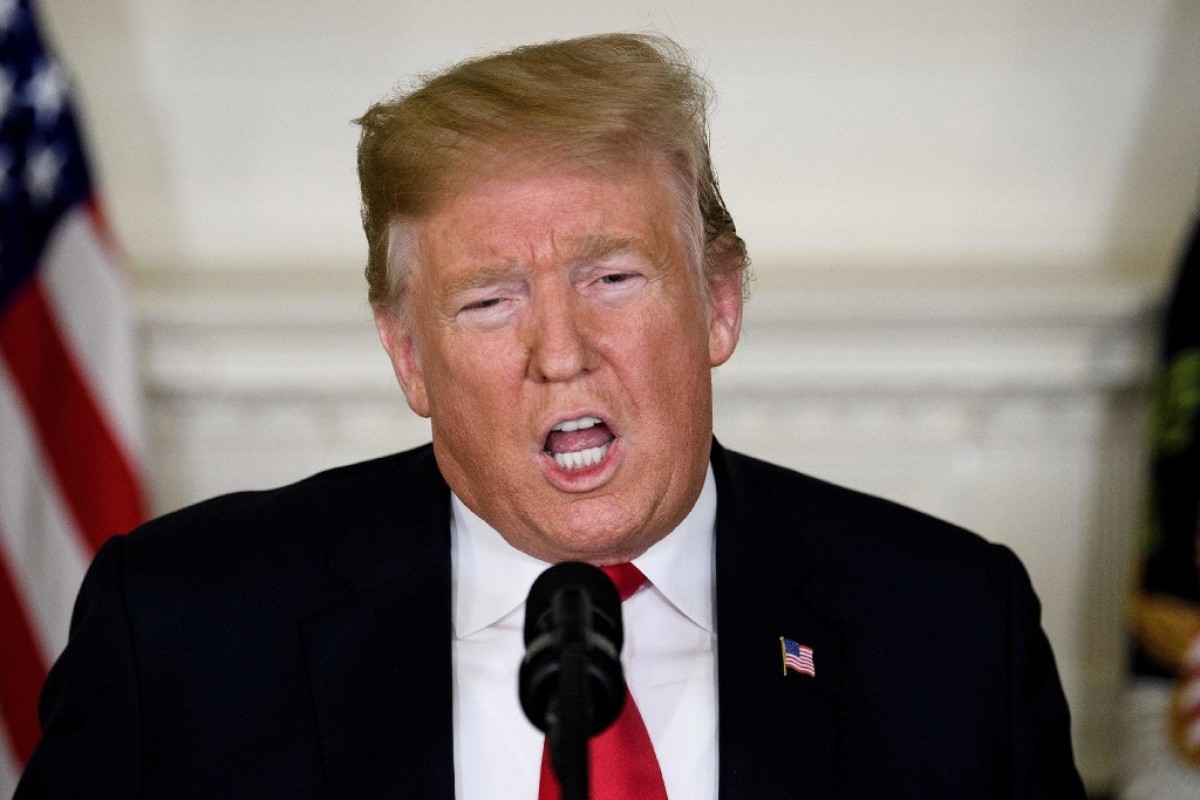
Donald Trump made 8,158 false or misleading claims in his first two years in office
 Donald Trump's biggest source of misleading claims is immigration-related statements.
Donald Trump's biggest source of misleading claims is immigration-related statements.Two years after being sworn into office, US President Donald Trump has made 8,158 false or misleading claims, according to The Fact Checker’s database. This database analyses, categorises and tracks every suspect statement uttered by the president.
That includes an astonishing 6,000-plus such claims in the president’s second year.
Put another way: the president averaged nearly 5.9 false or misleading claims a day in his first year in office. But he hit nearly 16.5 a day in his second year, almost triple the pace.
Trump has killed net neutrality in the US: here's why we need to preserve it in HK
The Washington Post started this project as part of their coverage of the president’s first 100 days, largely because they could not possibly keep up with the pace and volume of the president’s misstatements. Readers demanded they keep it going for the rest of Trump’s presidency.
In the first 100 days, the president made 492 unsupported claims. He managed to top that number just in the first three weeks of 2019. In October, as he was barnstorming the country in advance of the midterm elections, he made more than 1,200 false or misleading claims.
Not surprisingly, the biggest source of misleading claims is immigration, with a tally that has grown with the addition of 300 immigration claims in the past three weeks, for a total of 1,433.
Is Trump lying about a biased media?
In the president’s immigration address last Saturday, the last day of his second year in office, we counted 12 false or misleading claims, including:
1. “Heroin alone kills 300 Americans a week, 90 per cent of which comes across our southern border.”
The 300-a-week number checks out. But while 90 per cent of the heroin sold in the United States comes from Mexico, virtually all of it comes through legal points of entry. “A small percentage of all heroin seized by [Customs and Border Protection] along the land border was between Ports of Entry (POEs),” the Drug Enforcement Administration said in a 2018 report. So Trump’s infamous wall would do little to halt drug trafficking. Trump’s repeated claim that the wall would stop drug trafficking is a Bottomless Pinocchio claim.
Why it's important we can tell what's fake news and what's real
2. “Many of these security ideas have been proposed by Democrats themselves, and all of them have been supported by Democrats in the past, including a physical barrier wall or fence.”
Trump overstates the supposed Democratic support. Senator Charles Schumer, and many Democrats (although not Rep. Nancy Pelosi of California) voted for the Secure Fence Act of 2006, which was signed by President George W. Bush and authorised the building of a fence along more than 1,100 km of the US-Mexico border. It passed 283 to 138 in the House, with 64 Democratic votes, and 80 to 19 in the Senate, with 26 Democratic votes. But the fence they voted for is not as substantial as the wall Trump is proposing. Trump himself has called the 2006 fence a “nothing wall”.
3. “However, the whole concept of having lengthy trials, for anyone who sets one foot in our country unlawfully, must be changed by Congress. It is unsustainable. It is ridiculous. Few places in the world would even consider such an impossible nightmare.”
Trump is routinely astonished by US and international laws on asylum. This is how it works in any country that abides by the Universal Declaration of Human Rights and the United Nations Protocol Relating to the Status of Refugees: a refugee enters and makes a petition, and the government makes a ruling after analysing the facts. It’s also worth keeping in mind that 85 per cent of all deportations in the United States are ordered quickly, without a hearing before a judge.
Quiz: Did Trump say that? Can you tell the US president's real quotes from fake news?
4. “If we build a powerful and fully designed see-through steel barrier on our southern border, the crime rate and drug problem in our country would be quickly and greatly reduced. Some say it could be cut in half.”
Trump’s statement that a border wall would cut the nation’s crime rate – and “drug problem” – in half is simply laughable. There is no evidence to suggest that is the case. Most undocumented immigrants do not illegally cross the southern border, undocumented immigrants do not commit crimes at a rate higher than US citizens, and drugs flow through the border mostly through legal crossing points.
Four tips for spotting fake news, using online tools
5. “Thousands of children are being exploited by ruthless coyotes and vicious cartels and gangs.”
Here’s an example of where the president or his aides appear to have responded to our fact checks. No government statistic tracks children smuggled in by bad actors, “coyotes” or drug gangs, and for this speech, Trump has altered his usual claim that “last month alone, 20,000 minors were smuggled into the United States”. Now the number is fuzzier, and he no longer says “smuggled” but uses a weaker “exploited”. Trump previously referred to Customs and Border Protection’s number for family-unit apprehensions and unaccompanied minors. But we have pointed out that it’s wrong to describe it as a statistic that represents children being smuggled into the country.
Trump appears to be acknowledging there are no firm numbers for how many parents might have hired a smuggler, coyote or gang member – though there is no evidence that the figure would be “thousands”.
11 political terms to help you understand elections, government, and leaders like Trump
Claims about foreign policy (900) and trade (854) rank second and third, followed by claims about the economy (790) and jobs (755). But there’s also a grab-bag category of “miscellaneous” (899), which includes misleading attacks on the media or people the president perceives as enemies.
By our count, there were only 82 days – or about 11 per cent of the time – on which we recorded no claims. These were often days when the president golfed. But there were also 74 days, or about 10 per cent of his presidency, in which Trump made more than 30 claims. These were often days when he held campaign-style rallies, riffing without much of a script.
Trump has made many misleading claims about the investigation into possible Russian interference in the 2016 election, claiming 192 times a variation of the statement that it was a hoax perpetuated by Democrats. The CIA, the FBI and the National Security Agency had announced that they had “high confidence” that Russian President Vladimir Putin ordered a campaign to influence the election, with a clear preference for Trump.
Special counsel Robert Mueller III was appointed by Trump’s Justice Department, and the congressional committees investigating the matter have been headed by Republicans.
Trump repeated 127 times the falsehood about securing the biggest tax cut in US history, even though Treasury Department data shows it would rank eighth. And 126 times, he has falsely claimed that the United States has lost money on trade deficits. Countries do not “lose” money on trade deficits. A trade deficit simply means that people in one country are buying more goods from another country than people in the second country are buying from the first country. Trade deficits are also affected by macroeconomic factors, such as currencies, economic growth and savings and investment rates.
